NEWS FROM THE PILOT
Recovery of Alpanchía irrigation channel
16-17 December 2023. The recovery of the irrigation ditch of La Alpanchía, in Galera, one of the main arteries of the fertile plain of this Municipality, is becoming a reality thanks to the participation of 60 volunteers. The activity is organized by the Biocultural Archaeology Laboratory (MEMOLab UGR), coordinated by Professor Dr. José María Martín Civantos, from the Department of Medieval History and CCTTHH of the UGR and the PASOS Association, in collaboration with the Galera City Council, the Alpanchía Association, the Community of Irrigators of Galera and the ACEQUIAS HISTÓRICAS Association.
Further information is provided in the post of the INCULTUM Blog.
Interpretative route through the Acequia de la Alpanchía
On November 4, 2023 representatives of the INCULTUM pilot participated in the interpretative route through the Acequia de la Alpanchía, in Galera, municipality of the Altiplano. The activity was organized by the Vegas del Conocimiento project, the Alpanchía Association and the City Council of Galera, with whom we are collaborating from INCULTUM. Forty people participated in the tour, in which they could appreciate all the values of the irrigation ditches and meadows, accompanied by the main experts of all these aspects: the irrigators.
The poster of the event is available here for download.
Location
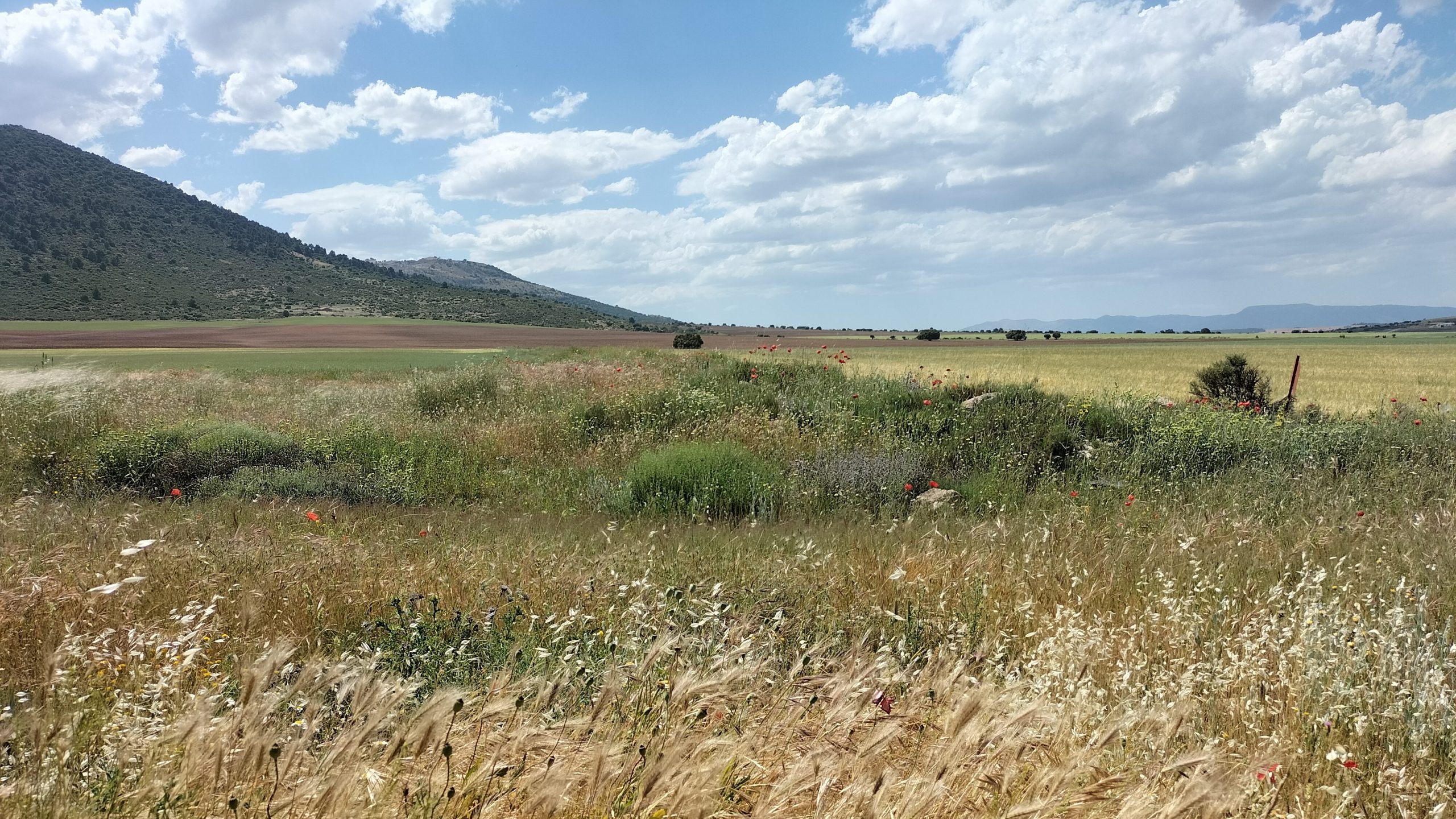
The Altiplano is located in the North of Granada’s province, in the South-East of Spain.
Responsible partner: University of Granada
This pilot case will be directly linked to the Portuguese and the Monti di Trapani (Italy) cases and will act as a cross-border action.
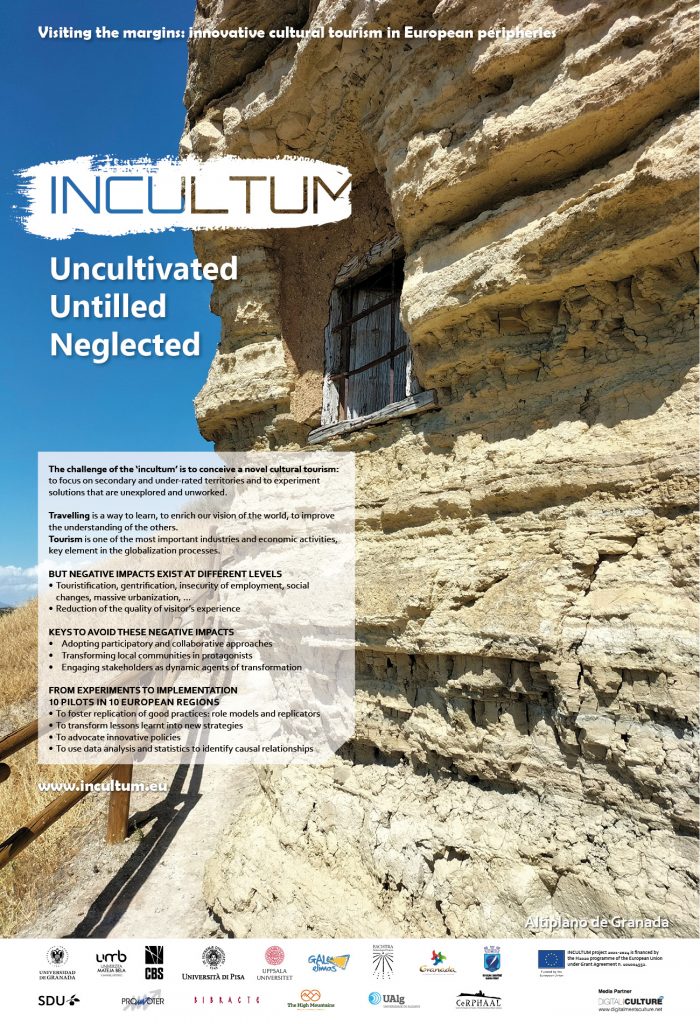
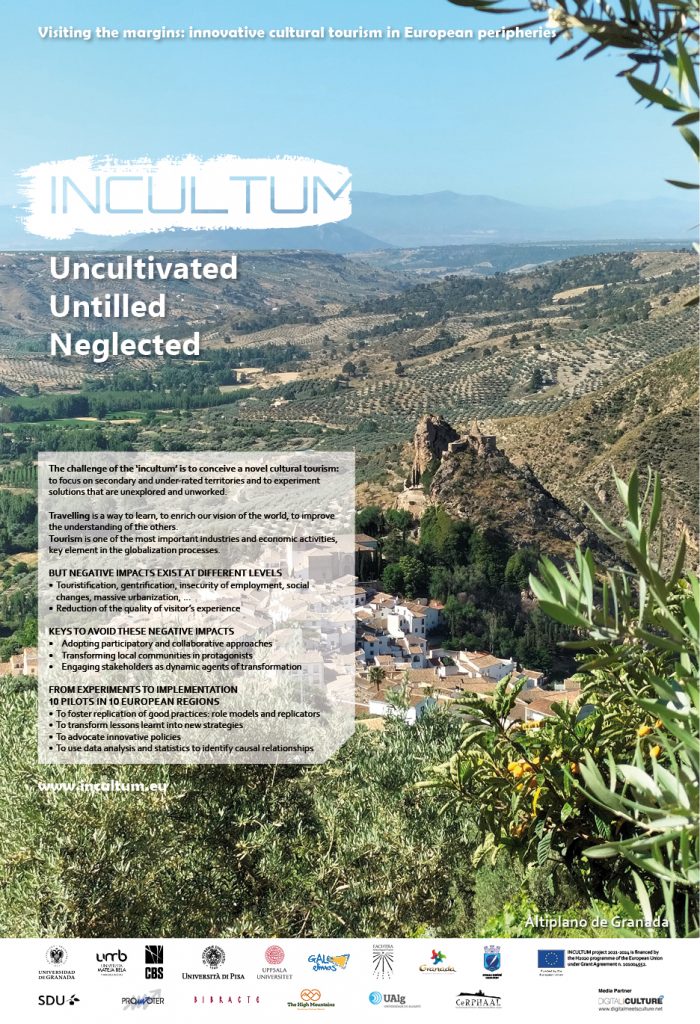
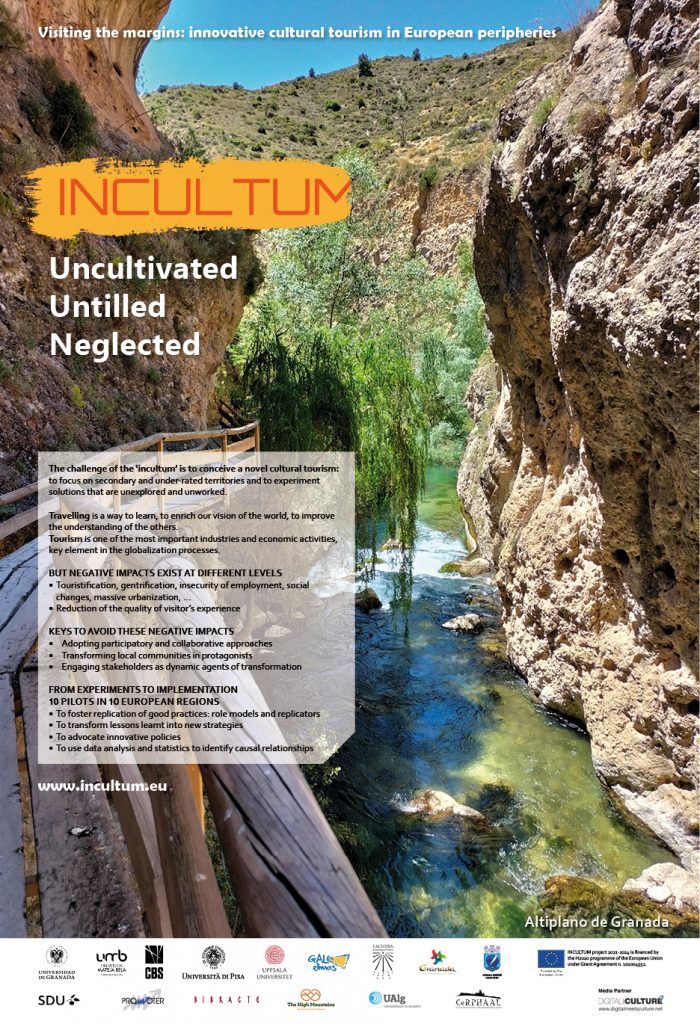
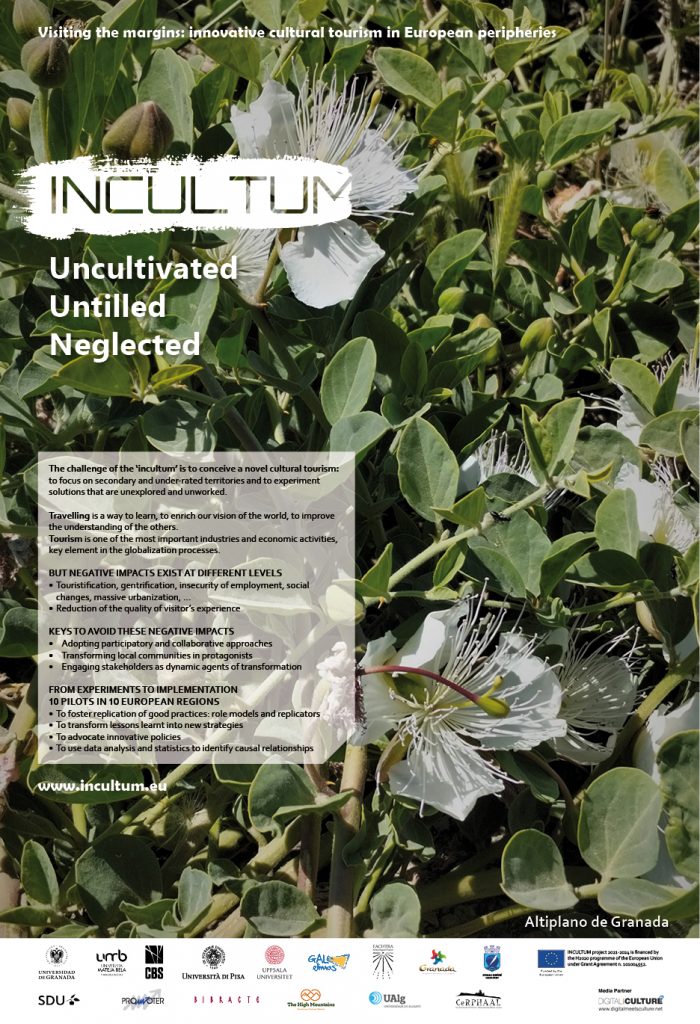
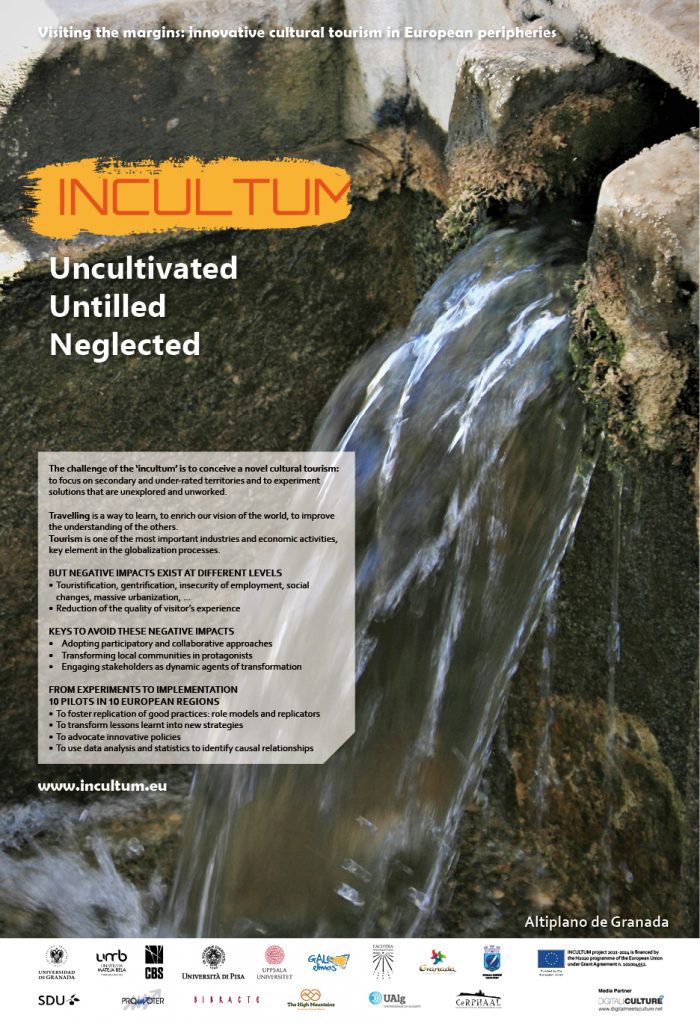
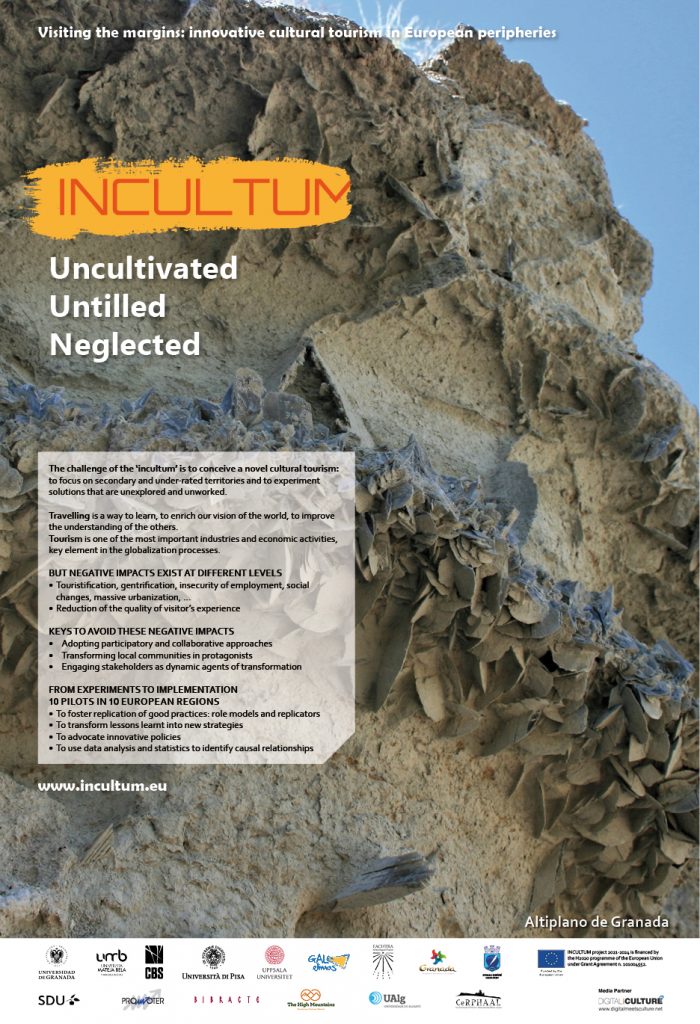
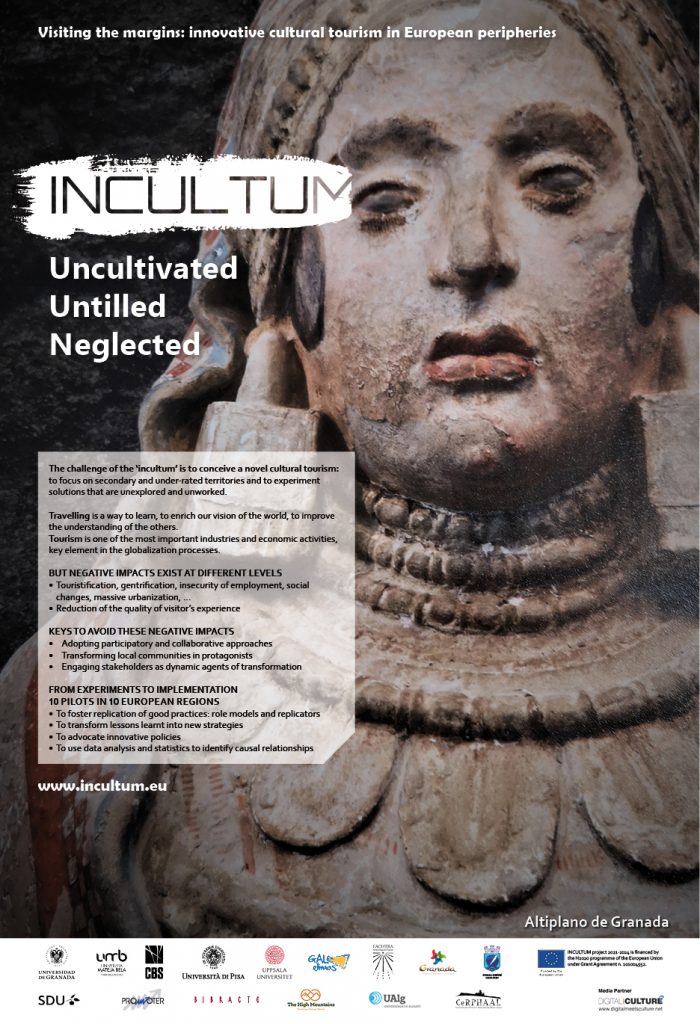
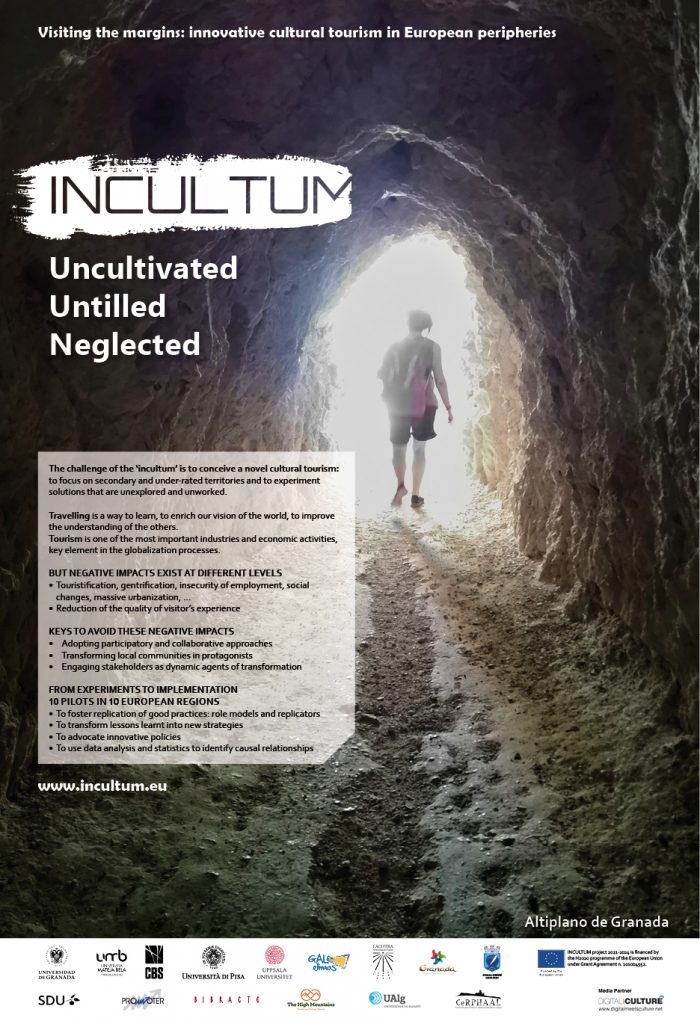
Context
It is a flat semi-arid area with poor soils and an extreme climate due to its altitude, continental influence and the presence of surrounding mountains. These characteristics have contributed to the creation of a unique landscape marked by impressive badlands where the historical relationship between humans and the environment has built balances based on a sustainable use of resources, particularly water and soils. This has allowed the creation of historical irrigation systems that form real oases of great beauty with numerous cultural and environmental values. Their construction dates mainly from the Middle Ages, during the Islamic period. They are still in use, managed by local farmer communities, but they are threatened by abandonment and agricultural intensification. The Altiplano is, in fact, part of the so-called “emptied Spain”, affected by a depopulation process and with one of the lowest percapita incomes in Spain. Nevertheless, its cultural and natural potential has led to the creation of the UNESCO Global Geopark which declaration was obtained on 10 July 2020, through the International Geoscience and Geoparks programme.
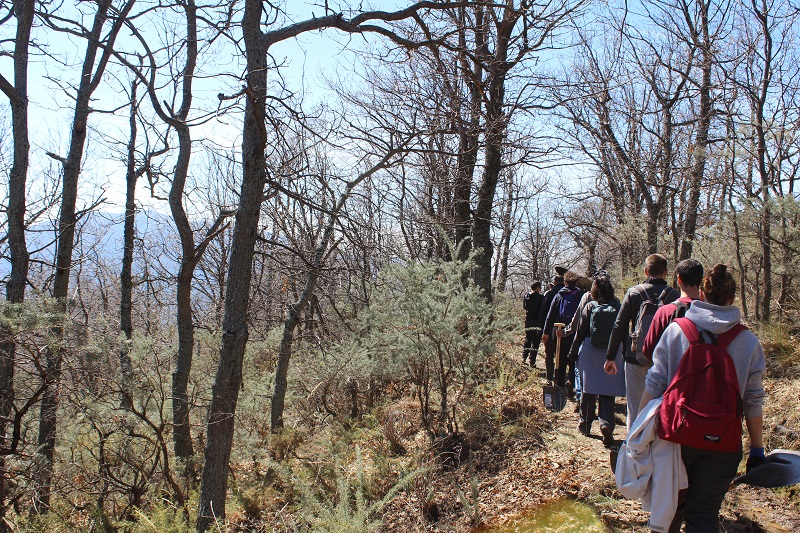
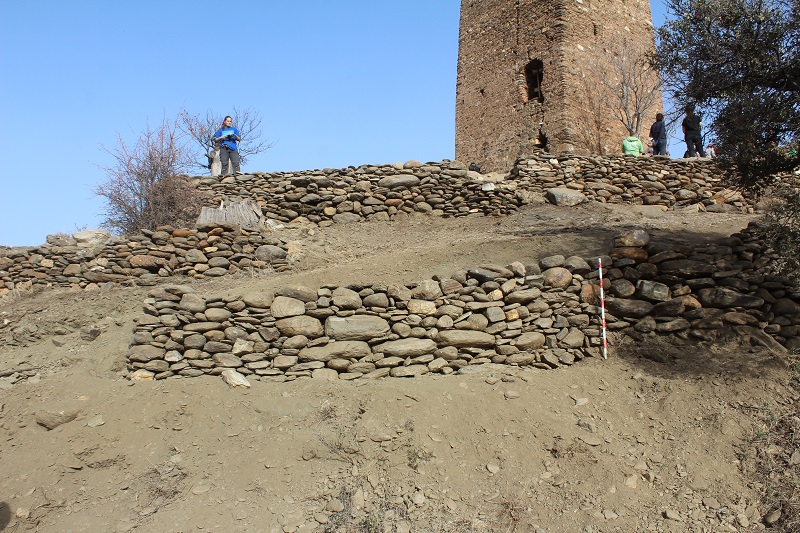

Actions
Actions will be focussed on historical irrigation systems. We propose to convert some of the existing pathways contiguous to the irrigation channels and oasis into cultural routes of great attractiveness, in terms of landscape, cultural and environmental values. Those routes will be linked to agrarian local production, rural heritage, traditional practices and ecosystem services
Communities involved
Local irrigator communities managing irrigation systems. These farmers are the owners and the experts of the canals, agrarian spaces, traditional practices and their values. The participatory approach will offer them a leading role in proposing, building and managing the routes, so that they will keep the control and autonomy and the benefits will return directly to the local communities, generating positive impacts.
Expected results
Cultural tourism will become a complementary activity and a way to disseminate values of the traditional agrarian spaces to bring local production and rural reality closer to visitors. Tourists will be offered a firsthand experience as they will be guided directly by the farmers introducing them into the territory and the local rural culture. It’s a diversification and empowerment exercise through local community engagement and active participation.
Associated partners
Asociación de Comunidades de Regantes Históricas y Tradicionales de Andalucía, Grupo de Desarrollo Rural de la comarca de Baza-Huéscar
Cross border and international nature of the pilot case
This pilot case will be directly linked to the Portuguese and Monti di Trapani (Italy) cases and will act as a cross-border action. The pilot is directly related to the Route of El Legado Andalusí. The headquarters of this route is actually in Granada, who have expressed interest in the project.
Innovations
Irrigation canals cultural routes managed by local farmers communities
Water heritage discovery for a sustainable future
Local products and markets promotion
Digital oasis map and tools
.





